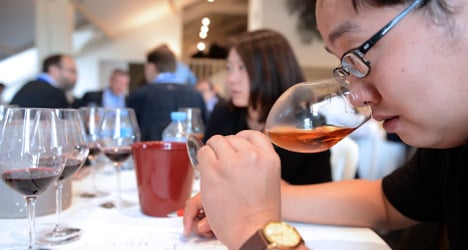Pernod Ricard, the world's second-biggest wine and spirits producer, said on Thursday that sales dipped 7.0 percent in the third quarter, hit by China's clampdown on extravagant feasts at official events.
Revenues for the three months ending March reached 1.6 billion euros, according to a statement from the company, which owns brands including Absolut vodka, Ballantine's whisky and Ricard pastis.
Sales in its Asia/Rest of the world region were poor in Asia, slipping 9 percent in the third quarter to 690 million euros.
"Sales were impacted primarily by China where the decline was exacerbated by destocking in the third quarter as anticipated," the company said.
The group's chief executive Pierre Pringuet told AFP that demand in China is expected to stay muted this year.
"We do not expect improvements from China for the full year", he said, adding however that there is "no doubt that the Chinese market will rebound".
In a bid to improve its image after a string of corruption scandals, the Chinese Communist Party has banned officials from exchanging gifts or serving "expensive food, wine and beverages" during official meals.
Cognac sales have been hard hit by the move, with Pernod Ricard's Martell brand has recorded a drop in demand.
French drinks group Remy Cointreau also reported impact from the Chinese move, and warned of a profit slump this month.
The company, which owns several brands of spirits, said that group sales slumped by 13.5 percent in the 12 months to the end of March mainly because its Remy Martin brandy had lost favour in China.



 Please whitelist us to continue reading.
Please whitelist us to continue reading.
Member comments